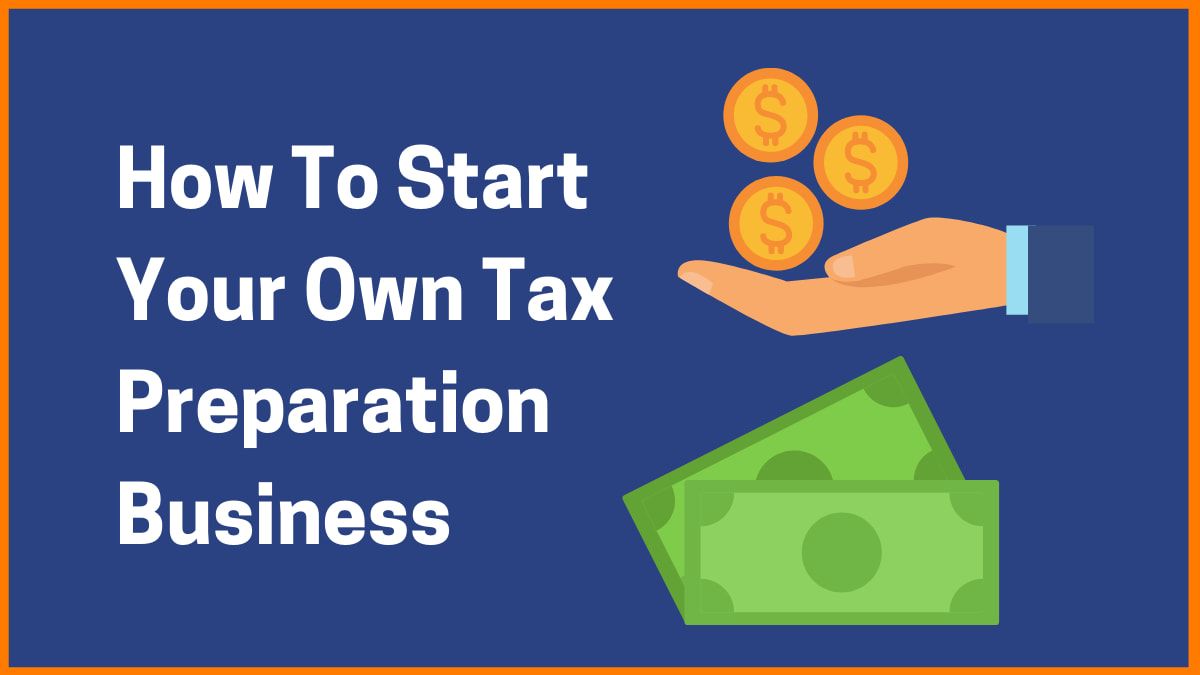Introduction:
how to start a tax business can be a lucrative and rewarding career path for those with an interest in finance and taxation. Whether you’re an accountant, tax preparer, or simply looking to start a new venture, there are a few key steps you should take to get your tax business up and running. In this article, we’ll explore these steps in detail, from obtaining the necessary licenses and certifications to marketing and expanding your business.
How to Start a Tax Business
Step 1: Obtain Necessary Licenses and Certifications
Before you can start your tax business, you’ll need to obtain any necessary licenses and certifications. This typically includes obtaining a Preparer Tax Identification Number (PTIN) from the IRS, as well as any state or local business licenses. Depending on your specific services, you may also need to obtain additional certifications, such as an Enrolled Agent (EA) designation or a Certified Public Accountant (CPA) license.
Step 2: Choose Your Business Structure
Next, you’ll need to choose the right business structure for your tax business. This may include forming a sole proprietorship, partnership, limited liability company (LLC), or corporation. Each structure has its own benefits and drawbacks, so it’s important to do your research and choose the structure that’s best for your specific needs.
Step 3: Set Up Your Office and Equipment
Once you’ve obtained your licenses and certifications and chosen your business structure, you’ll need to set up your office and equipment. This may include renting office space, purchasing equipment such as computers and tax software, and setting up a phone and internet connection.
Step 4: Develop Your Services and Pricing
Before you can begin marketing your tax business, you’ll need to develop your services and pricing. This may include offering tax preparation and planning services, as well as bookkeeping and accounting services. You’ll also need to determine your pricing structure, including whether you’ll charge a flat fee or hourly rate.
Step 5: Develop Your Marketing Strategy
With your services and pricing in place, you can begin developing your marketing strategy. This may include creating a website, social media presence, and advertising campaigns. You may also want to consider networking with other professionals in your industry, such as attorneys or financial advisors, to expand your reach and build relationships.
Step 6: Hire and Train Employees
As your tax business grows, you may need to hire and train additional employees. This may include tax preparers, bookkeepers, and administrative staff. It’s important to ensure that your employees are properly trained and certified, and that they adhere to the highest standards of professionalism and ethics.
Step 7: Expand Your Services and Offerings
Finally, as your tax business continues to grow and evolve, you may want to expand your services and offerings. This may include adding additional tax preparation and planning services, as well as offering consulting services to help clients improve their financial management and tax planning.
How to start a tax preparation business from home?
Starting a tax preparation business from home can be a great option for those who want to work for themselves and enjoy the flexibility of working from home. To start a tax preparation business from home, you should have a good understanding of tax laws, tax preparation software, and other tax preparation tools. You can get started by obtaining a tax preparation software, registering your business, obtaining a PTIN, and obtaining liability insurance. Additionally, you can build a website, establish a social media presence, and advertise your services to attract clients.
How much does it cost to start a tax preparation business?
The cost of starting a tax preparation business can vary depending on several factors such as location, software, marketing, and other expenses. The average cost of starting a tax preparation business can range from $3,000 to $10,000. This includes the cost of tax preparation software, licensing fees, office supplies, marketing materials, and other expenses.
Is tax preparation business profitable?
Yes, the tax preparation business can be a profitable venture for those who have the necessary knowledge and skills. According to the Bureau of Labor Statistics, tax preparers earned a median annual salary of $47,480 in 2020. However, profitability may depend on factors such as location, competition, pricing, and the number of clients.
Tax preparer education requirements The education requirements for tax preparers can vary by state. However, the IRS requires all tax preparers to obtain a Preparer Tax Identification Number (PTIN) and complete an annual tax update course. Some states may also require tax preparers to complete additional education and training programs to become licensed.
How do I become a certified IRS tax preparer?
To become a certified IRS tax preparer, you must obtain a Preparer Tax Identification Number (PTIN) and complete the Annual Filing Season Program (AFSP) requirements. The AFSP program consists of 18 hours of continuing education courses that cover federal tax law updates, ethics, and other topics. After completing the program, you will receive a Record of Completion from the IRS.
Tax preparer salary The salary of a tax preparer can vary depending on several factors such as location, experience, and the number of clients. According to the Bureau of Labor Statistics, tax preparers earned a median annual salary of $47,480 in 2020.
How to become a tax preparer To become a tax preparer, you should have a good understanding of tax laws and regulations. You can start by obtaining a Preparer Tax Identification Number (PTIN) from the IRS and completing the Annual Filing Season Program (AFSP) requirements. Additionally, you may consider obtaining a degree in accounting or completing tax preparation courses.
Tax preparer certification There are several tax preparer certifications available such as the Enrolled Agent (EA) certification, Certified Public Accountant (CPA) certification, and the Accredited Tax Preparer (ATP) certification. These certifications can demonstrate your expertise and knowledge in tax preparation to potential clients.
What are the requirements to start a tax business?
The requirements to start a tax business vary by state, but generally, you will need a tax identification number, a business license, and liability insurance. Additionally, you may need to register with your state’s tax authority.
How much does it cost to start a tax business?
The cost to start a tax business will depend on a variety of factors, such as the type of business structure you choose, the equipment you need, and the cost of any necessary certifications or education. However, it is possible to start a tax business with as little as $500.
What qualifications do I need to become a tax preparer?
The qualifications to become a tax preparer vary by state, but generally, you will need to complete a tax preparation course and pass an exam. Some states also require tax preparers to obtain a license.
How do I become a certified IRS tax preparer?
To become a certified IRS tax preparer, you will need to pass the IRS Registered Tax Return Preparer Exam. However, the IRS has suspended the RTRP program, and it is currently unclear if or when it will be reinstated.
Is a tax preparation business profitable?
A tax preparation business can be profitable, especially during tax season. However, your profitability will depend on factors such as your pricing, the volume of clients you have, and your operating expenses.
How do I market my tax preparation business?
There are many ways to market a tax preparation business, such as through social media, direct mail campaigns, and partnerships with other businesses. Additionally, offering promotions or discounts to first-time clients can be an effective way to attract new business.
Can I start a tax preparation business from home?
Yes, it is possible to start a tax preparation business from home. However, you may need to check with your local zoning laws to ensure that operating a business from your home is allowed.
What are some common mistakes to avoid when starting a tax preparation business?
Common mistakes to avoid when starting a tax preparation business include failing to obtain the necessary licenses and permits, underpricing your services, and failing to properly manage your finances. Additionally, it is important to stay up-to-date on tax laws and regulations to avoid any potential legal issues.
Conclusion:
Starting a tax business can be a challenging and rewarding endeavor, but it requires careful planning and execution. By obtaining the necessary licenses and certifications, choosing the right business structure, developing your services and pricing, and implementing a strong marketing strategy,
you can build a successful and profitable tax business. As you grow and expand your offerings, it’s important to stay up-to-date on the latest tax laws and regulations, and to continue investing in the growth and development of your employees and business. With dedication and hard work, your tax business can become a trusted and valued resource for clients in your community.



